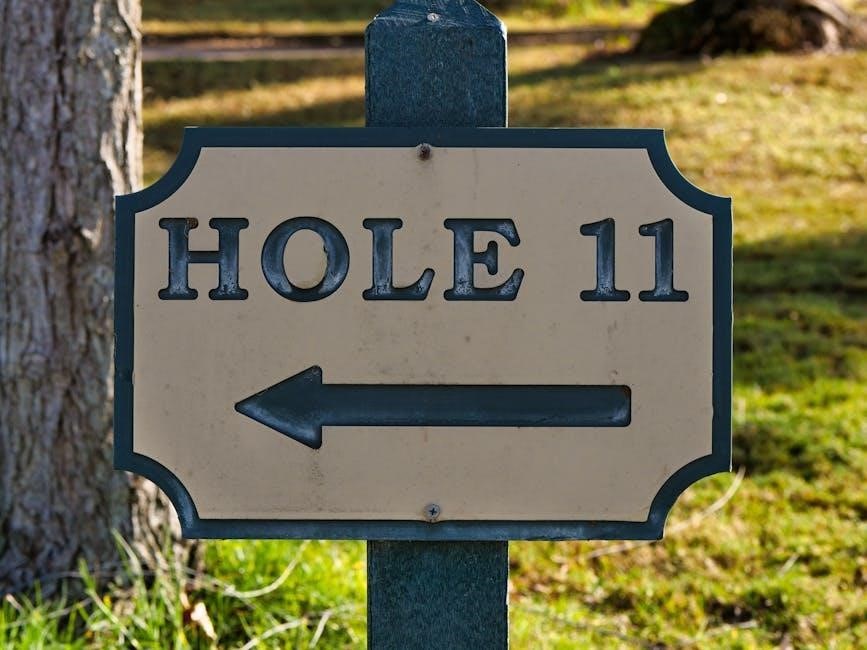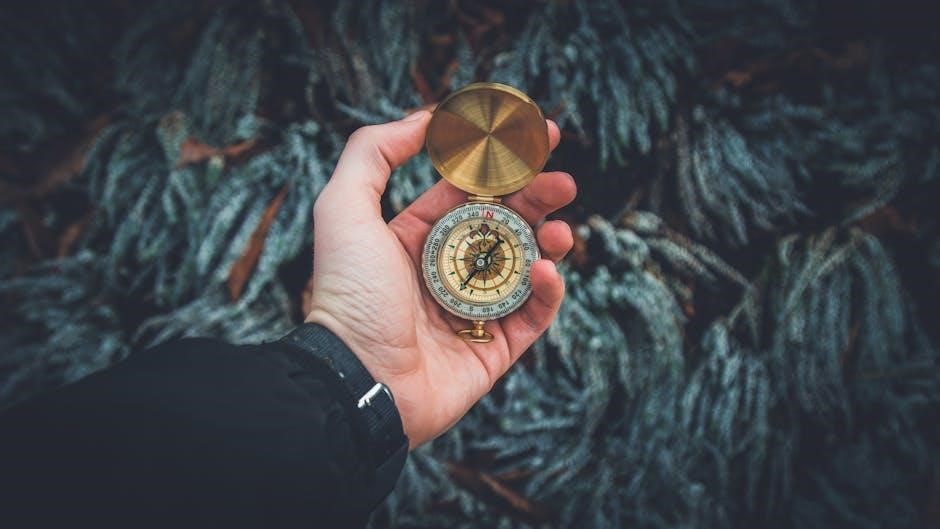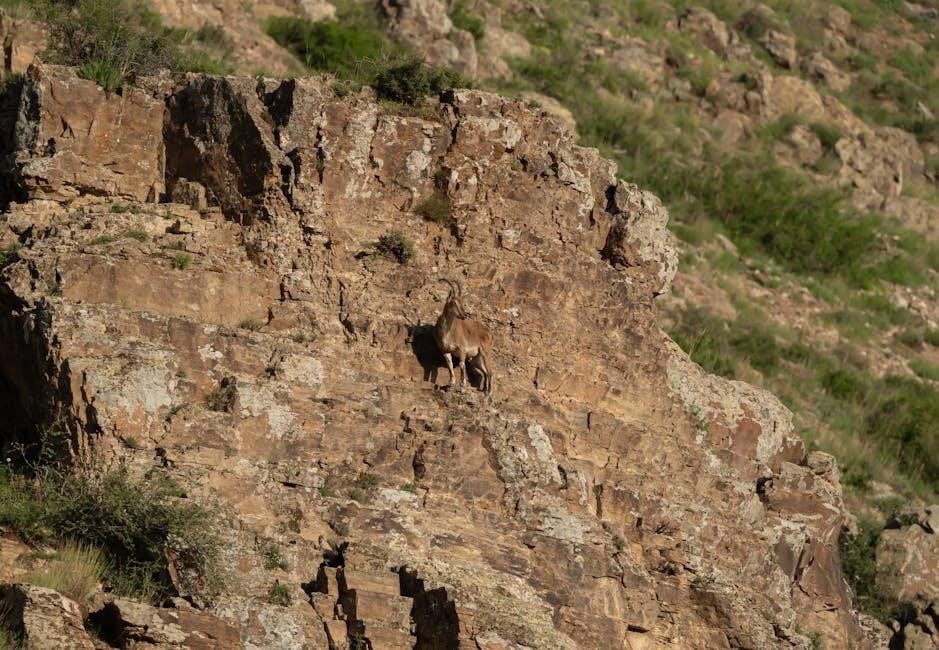Carnal instinct refers to bodily desires and passions‚ often linked to sexual attraction and primal drives. It represents a fundamental aspect of human behavior‚ influenced by biology‚ psychology‚ and culture‚ shaping interactions and decisions beyond conscious control.

1.1 Definition and Overview
Carnal instinct refers to the innate‚ often unconscious drives related to physical desires‚ particularly sexual attraction and primal urges. It encompasses the biological and psychological forces that shape human behavior‚ focusing on bodily pleasures and passions rather than spiritual or rational considerations. This concept is deeply rooted in the natural aspects of human existence‚ influencing actions and decisions that are essential for survival and reproduction. Carnal instincts are universal‚ yet their expression varies widely among individuals and cultures‚ reflecting diverse societal norms‚ moral frameworks‚ and personal experiences. These instincts often operate beneath conscious awareness‚ driving behaviors that are fundamental to human nature. Understanding carnal instinct involves exploring its biological origins‚ psychological mechanisms‚ and the interplay between individual desires and societal expectations. It is a complex and multifaceted aspect of human life‚ forming the foundation for many interpersonal dynamics and personal choices. By examining its definition and scope‚ we can better appreciate its role in shaping human behavior and experiences.
1.2 Historical Context
The concept of carnal instinct has been explored throughout history‚ with varying interpretations across cultures and eras. In ancient civilizations‚ such as Greece and Rome‚ carnal desires were often associated with deities and natural forces‚ reflecting their acceptance as inherent aspects of human nature. During the Middle Ages‚ religious influences‚ particularly Christianity‚ framed carnal instincts as sinful and contrary to spiritual purity‚ emphasizing the need for moral restraint. The Enlightenment period brought a shift toward scientific inquiry‚ with philosophers like Rousseau discussing the tension between natural instincts and civilized behavior. By the 19th and 20th centuries‚ psychological theories‚ notably Freudian psychoanalysis‚ began to formalize the concept‚ linking carnal instincts to unconscious drives and human sexuality. This historical evolution reveals a persistent fascination with understanding and managing carnal instincts‚ reflecting their profound impact on human behavior and societal norms. The interplay between acceptance and condemnation across history underscores the complexity of this fundamental aspect of human nature.

Psychological Perspectives on Carnal Instinct
Psychological theories explore carnal instinct as a drive rooted in human sexuality and primal desires. Freudian theory links it to the id‚ while modern views emphasize its role in emotional connections‚ stress relief‚ and evolutionary survival‚ highlighting its complexity in shaping behavior.
2.1 Freudian Theory
Sigmund Freud viewed carnal instinct as a fundamental drive tied to the “id‚” the primitive part of the psyche seeking immediate gratification. He believed these instincts are innate‚ focusing on sexual desire and pleasure‚ and play a central role in shaping behavior. Freud argued that the conflict between the id and the “superego” (moral principles) creates psychological tension‚ influencing how individuals manage their carnal impulses. In his psychoanalytic framework‚ repressing these instincts could lead to mental distress‚ while uncontrolled expression might result in societal conflict. Freud’s theories emphasize the unconscious mind’s power in driving carnal desires‚ suggesting that civilization’s constraints often clash with primal urges. This perspective underscores the struggle between biological drives and societal expectations‚ a cornerstone of Freudian psychology. His work remains influential in understanding the psychological underpinnings of carnal instinct and its role in human behavior.
2.2 Modern Psychological Views

Modern psychology expands on the concept of carnal instinct‚ viewing it as a complex interplay of biological drives‚ emotional responses‚ and cultural influences. Unlike Freudian theory‚ contemporary perspectives emphasize the role of evolution in shaping these instincts‚ suggesting they are adaptive mechanisms for survival and reproduction. Researchers highlight the influence of hormones like testosterone and dopamine‚ which regulate sexual desire and pleasure. Additionally‚ modern theories explore how societal norms and personal experiences modify the expression of carnal instincts‚ often leading to a balance between indulgence and restraint. The cognitive-behavioral model suggests that thoughts and environments significantly influence carnal desires‚ offering insights into how individuals manage these impulses. Overall‚ modern psychology provides a multifaceted understanding of carnal instinct‚ blending biological‚ psychological‚ and sociocultural factors to explain its role in human behavior.
2.3 Case Studies
Case studies on carnal instinct reveal its manifestation in various contexts‚ from sexual desire to primal behavior. One study examined individuals with heightened libidos‚ linking their actions to biological drives rather than emotional connections. Another explored societal influences‚ where cultural norms either suppressed or amplified carnal behaviors. A notable case involved individuals grappling with conflicting desires‚ showcasing the tension between instinct and rational thought. These studies highlight the complexity of carnal instinct‚ demonstrating how it interacts with personal experiences‚ societal expectations‚ and psychological frameworks. They also illustrate the adaptive nature of these instincts‚ often serving as mechanisms for survival and reproduction. By examining real-life scenarios‚ researchers gain insights into the universal yet highly individualized expression of carnal instincts‚ offering a deeper understanding of their role in human behavior and decision-making.

Biological Basis of Carnal Instinct
Carnal instinct is deeply rooted in biology‚ driven by hormones like testosterone and estrogen‚ which regulate sexual desire. Neurological mechanisms‚ such as the limbic system‚ control primal urges‚ while evolutionary forces shape these instincts to ensure survival and reproduction.
3.1 Hormonal Influences
Hormonal influences play a pivotal role in shaping carnal instinct‚ primarily through the action of sex hormones such as testosterone and estrogen. These hormones regulate libido‚ sexual arousal‚ and reproductive behaviors‚ driving individuals to seek physical and intimate connections. Testosterone‚ in particular‚ is linked to increased sexual desire and aggression‚ influencing primal urges in both males and females. Estrogen‚ while often associated with female reproductive health‚ also contributes to sexual motivation and emotional bonding. The interplay of these hormones is crucial‚ as imbalances can significantly alter sexual behavior and instinctual responses. Additionally‚ hormonal fluctuations during phases like puberty‚ menstruation‚ and menopause can intensify carnal instincts‚ highlighting the biological foundation of these drives. Understanding the hormonal underpinnings of carnal instinct provides insight into how physiological processes shape human sexuality and behavior‚ emphasizing the deep connection between biology and desire.
3.2 Neurological Mechanisms
The neurological mechanisms underlying carnal instinct involve a complex interplay of brain regions and neurotransmitters that regulate sexual desire‚ arousal‚ and behavior. Key structures such as the limbic system‚ particularly the amygdala and hypothalamus‚ play a central role in processing emotional and sexual stimuli. The hypothalamus‚ for instance‚ is crucial for controlling hormonal responses and instinctual behaviors linked to reproduction. Additionally‚ the prefrontal cortex‚ which governs decision-making and impulse control‚ often interacts with these primal drives‚ creating a balance between instinct and rationality.
Neurotransmitters like dopamine and serotonin are integral to these processes. Dopamine is associated with pleasure and reward‚ reinforcing behaviors that satisfy carnal desires. Serotonin‚ on the other hand‚ modulates sexual arousal and emotional attachment‚ influencing how instincts are expressed. The brain’s reward system further amplifies these drives‚ often linking sexual activity to feelings of pleasure and satisfaction. Understanding these neurological pathways provides insight into how the brain processes and prioritizes carnal instincts‚ highlighting the intricate relationship between biology and behavior.
3.3 Evolutionary Perspectives

From an evolutionary standpoint‚ carnal instincts are innate drives that have developed to ensure survival and reproduction. These instincts are shaped by natural selection‚ which favors behaviors that enhance the likelihood of passing genes to future generations. Sexual desires and mating behaviors‚ for instance‚ are universal across cultures‚ indicating a shared evolutionary heritage.
Evolutionary psychology suggests that gender roles and mating strategies are influenced by biological imperatives. Men often exhibit instincts geared toward seeking multiple mates to maximize reproductive success‚ while women may prioritize partners with resources and stability to ensure the survival of offspring. These patterns reflect ancestral environments where such behaviors were advantageous.
Moreover‚ evolutionary theory explains why certain physical and behavioral traits are perceived as attractive‚ as they signal health and fertility. The drive for sexual gratification and pair-bonding is thus deeply rooted in our evolutionary history‚ serving as a mechanism to perpetuate the species. Understanding these instincts through an evolutionary lens provides insights into their origin and persistence in modern human behavior.

Sociocultural Influences on Carnal Instinct
Societal norms and cultural values significantly shape carnal instincts‚ influencing how desires are expressed and perceived. Norms regulate sexual behavior‚ reflecting moral codes and expectations‚ while cultural differences define acceptable expressions of carnal urges.
4.1 Impact of Culture and Society
Culture and society play a pivotal role in shaping carnal instincts‚ as they dictate norms‚ values‚ and acceptable behaviors. Religious and moral frameworks often regulate sexual desires‚ influencing how individuals express or suppress their instincts. Societal expectations can either encourage or restrict the exploration of carnal urges‚ reflecting cultural attitudes toward sexuality. For instance‚ some cultures promote openness about sexual desires‚ while others emphasize modesty and restraint. Laws and social norms further reinforce these standards‚ creating boundaries that govern sexual behavior. Media and cultural representations also shape perceptions‚ often idealizing certain expressions of sexuality while stigmatizing others. These external influences interact with personal beliefs and values‚ leading to varying degrees of alignment or conflict with carnal instincts. Ultimately‚ culture and society act as both regulators and reflections of human sexuality‚ shaping how carnal instincts are understood and expressed in different contexts.
